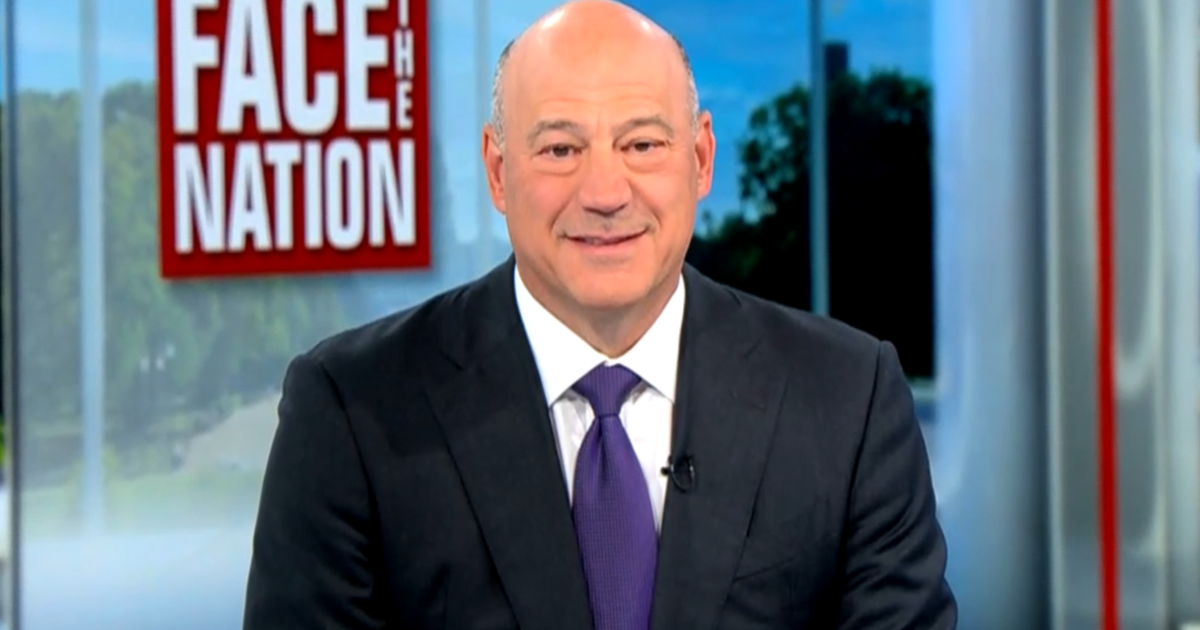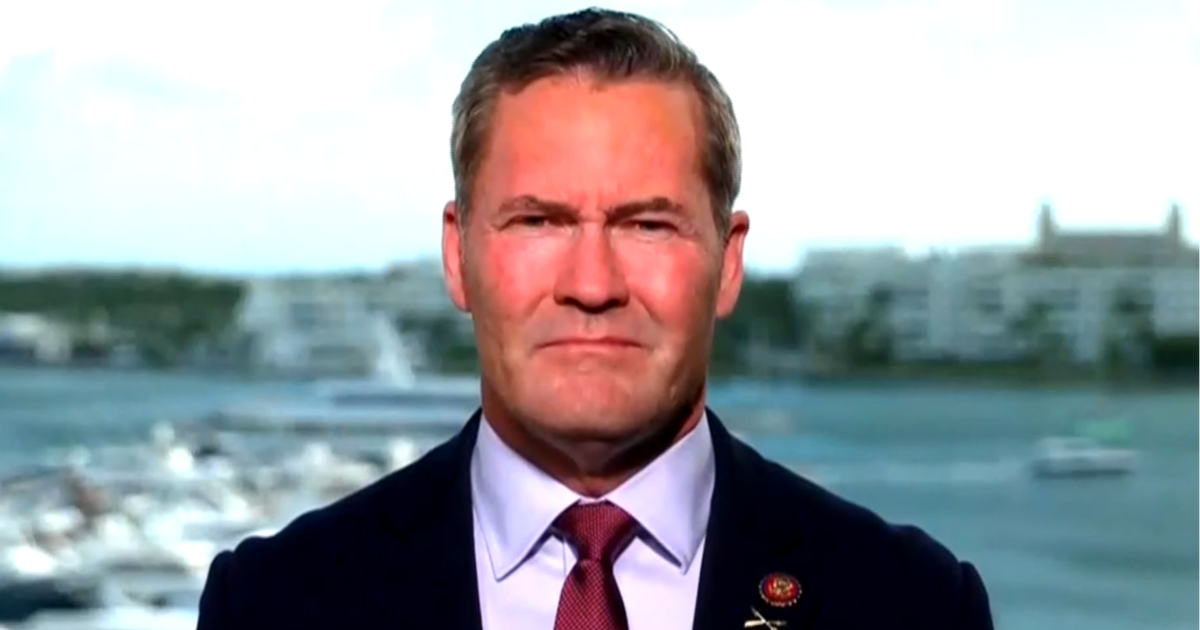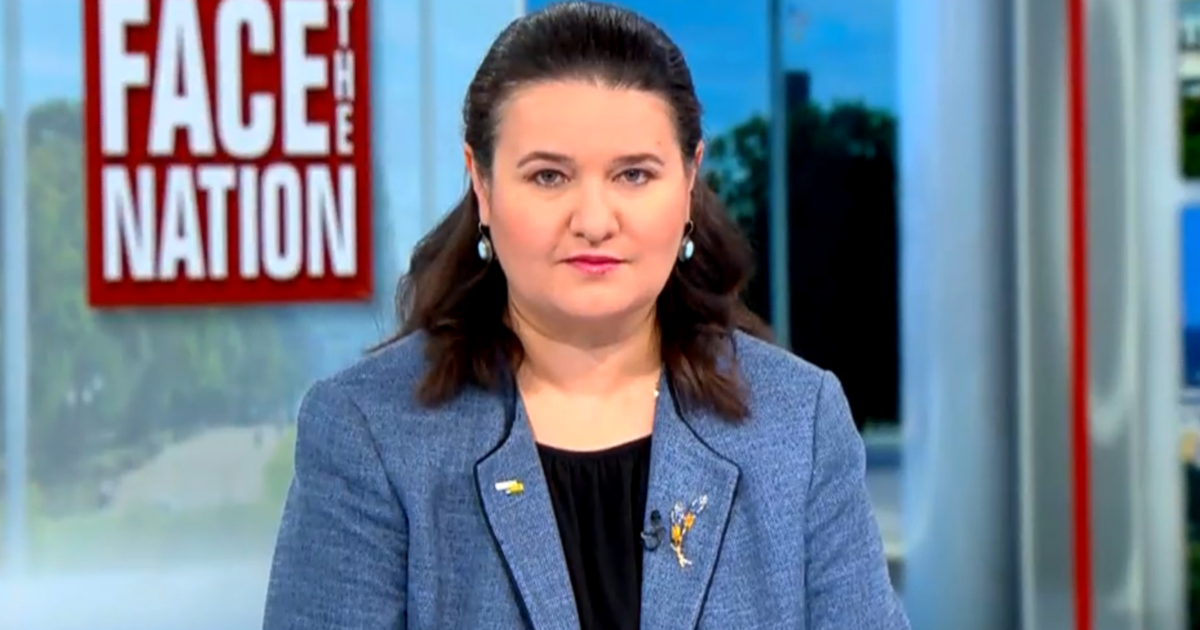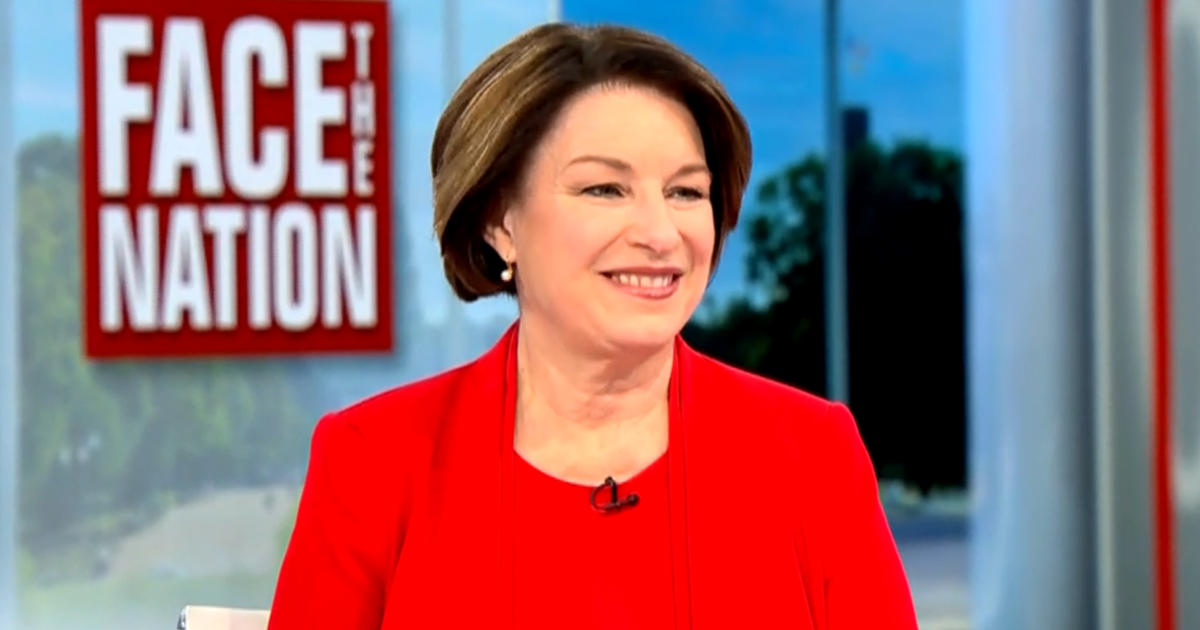Transcript: Acting White House chief of staff Mick Mulvaney on "Face the Nation," July 28, 2019
The following is a transcript of the interview with acting White House chief of staff Mick Mulvaney that aired Sunday, July 28, 2019, on "Face the Nation."
MARGARET BRENNAN: Good morning and welcome to "Face the Nation." We begin with acting White House chief of staff Mick Mulvaney. Good morning, Mick, good to have you here.
MICK MULVANEY: Margaret, good morning. Thanks for having me.
MARGARET BRENNAN: The president has tweeted 13 times in the past 24 hours about Congressman Elijah Cummings. I want to read the first tweet. He said, "Why is so much money sent to the Elijah Cummings district when it's considered the worst run and most dangerous anywhere in the United States. No human being would want to live there. Where's all the money going? How much is stolen? Investigate immediately."
MARGARET BRENNAN: What is the objective of this?
MULVANEY: To push back against what the president sees as inaccuracies, lies, about what Mr. Cummings said this week in the oversight committee about the border. If you go on the internet you can find the exchange where Elijah Cummings said that children were- were sit- sitting in their own feces at the border. That's wrong, in fact it's misleadingly wrong. It's the type of thing that really breaks down a civilized debate about how to address the- the crisis at the border. And the president didn't like it. Does the President speak hyperbolically? Absolutely. Have we seen this type of reaction for him before? Yes and you will again because he pushes back. He fights back when he feels like he's attacked and what- what Mr. Cummings said this week was wrong.
MARGARET BRENNAN: So is there an investigation being launched?
MULVANEY: Into?
MARGARET BRENNAN: The president says investigate this corrupt mess immediately.
MULVANEY: Oh, no he's calling on Congress to do it. Congress over- does oversight. So my guess is no because Mr. Cummings is in charge of the Oversight Committee. Keep in mind, I think- I think Maryland is the richest state on a per capita or per household basis in the nation yet they have real abject poverty in- in Baltimore. I think the president wants folks to- to know that look, instead of dealing with the- those issues, Mr. Cummings is spending all of his time on this impeachment inquiry which is- we all know is going nowhere. So it's the- Democrats have a chance to actually focus on things that matter, instead they're working on scandal. And I think the president's doing everything he can to highlight that.
MARGARET BRENNAN But you know though that this is a majority black district. And when the president calls it "rat infested," he says "no human being would live there." Do you understand that that is offensive to the Americans who do live there?
MULVANEY: I understand that everything that Donald Trump says is offensive to some people. Keep in mind about two weeks ago, the president said things that were critical of AOC and her squad and was immediately accused of being a racist. A couple of days later Nancy Pelosi said some things critical of that same group of people and she was defended by the media and by folks on the left for not being racist when Donald Trump--
MARGARET BRENNAN: "No human being would want to live there."
MULVANEY: When Donald Trump attacked people--
MARGARET BRENNAN: This is being perceived as racist, do you understand why?
MULVANEY: I understand why but that doesn't mean that it's racist. The president is pushing back against what he sees as wrong. It's how he's done in the past and he'll continue to do in the future.
MARGARET BRENNAN: So you think this is just hyperbolic?
MULVANEY: I absolutely do. And I hope the folks actually pay attention to it and realize what Democrats in Congress are doing. Instead of helping people back home, they're focusing on scandal in Washington D.C. which is the exact opposite of what they said they would do when they ran for election in 2018.
MARGARET BRENNAN: Let's talk about what the White House is doing. Why hasn't the White House gotten behind a single bill to improve election security? You saw the Senate Intelligence Committee come out with a bipartisan agreement and recommendations warning that Russia continues to interfere. Why doesn't the White House want to do everything possible to secure elections?
MULVANEY: Yeah I- I- I'm sorry I push back but your facts are not right. We actually signed, in 2018, the Cybersecurity of Infrastructure Security Bill that added the CISA to DHS to do exactly what you've just talked about.
MARGARET BRENNAN: So the two bills that were put forward and that the Republican leader has said don't need to be considered, you think everything is sufficient to this point legally?
MULVANEY: Completely unnecessary, deals with paper ballots, there's a lot of things on how to register to vote. Let's face it, it was a bill that came up in the last week because the Democrats saw an opportunity coming out of the Mueller investigation to not talk about what Mueller said about- about collusion and obstruction and instead wanted to focus on election security and ignore the fact the parties have already worked together to do a great deal on election security. This administration has worked with every single state, seventeen hundred different localities who run elections, we've done tabletop exercises, we go visits. We've met with every single presidential campaign to go over how to prepare against and prevent foreign intervention into the 2020 elections. We're doing everything necessary to do this. The bills from this week were simply showmanship and that's why they- that's why they failed.
MARGARET BRENNAN: I understand you're arguing the measures have been sufficient but that bipartisan Senate Intelligence Committee says they're not and made recommendations to do more including that "the U.S. should communicate to adversaries that it will view an attack on its election infrastructure as a hostile act and we will respond accordingly." This was President Trump when he met with Vladimir Putin last month.
*VIDEO CLIP*
MARGARET BRENNAN: He appears to be laughing it off, do you think that is sufficient?
MULVANEY: Do I think it's sufficient? I won't- won't answer that because I was there for that and we did talk about it afterwards when the cameras were away. So the president did- or did raise the topic with Mr. Putin. We take this very seriously, again, judge us by the actions. Judge us, by the way, in comparison to what the Obama administration did in 2014 and 2015 going into the 2016 elections when they had information that the Russians were trying to interfere and Susan Rice, then the national security advisor, I think, gave the instruction to stand down on dealing with foreign intervention in our election. So we're happy to be judged by the actions because we think we're taking tremendous steps to preserve election integrity.
MARGARET BRENNAN: I want to ask you about the budget. The White House cut a budget deal with Democrats that Democrats liked and many Republicans did not. In fact your former Freedom Caucus colleague Mark Meadows wrote the following, "This is a bad deal for the president, it's a bad deal for conservatives. Most importantly it's a bad deal for the forgotten men and women who voted to shake up Washington D.C. when they sent President Trump to the White House. This is not draining the swamp, it's feeding the swamp and entrenching the status quo." Why didn't the White House demand spending cuts?
MULVANEY: Because we were never going to get them. Keep in mind the Democrats won the election--
BRENNAN: You've given up?
MULVANEY:-- for the House in 2018. You can do what's possible in Washington D.C. When the Democrats won the House the chances of us passing a budget deal that were going to satisfy my friends and colleagues in the Freedom Caucus, went to practically zero. Elections do have consequences.
MARGARET BRENNAN: So President Trump has given up any promise of balancing the budget at any point?
MULVANEY: Look- well our budgets still- if Congress would take our budget, they would still have a chance to do that. But the Congress and media fall over themselves to say how every president's budget is dead on arrival. If they would like to know how we would spend money if we were in charge of the spending process they can go to our budget. We are not in charge of the spending progress- process, Congress is. What we got in exchange for those higher levels of spending and yes, we spent more money than we would if we'd left to our own devices. We did get more money for defense. We got more money for the VA and we protected a lot of the conservative Republican policies that are hardwired into these spending bills. Democrats wanted to undo the protections we had had on life. They wanted to undo some of the things we were doing on the border for border security. They wanted to undo a lot of our regulatory, our deregulatory agenda and we prevented that from happening. Did we spend more than we wanted to? Yes. Did we get a lot in return? Yes we did.
MARGARET BRENNAN: I want to ask you about this deal the U.S. and Guatemala- Guatemala cut, Safe Third Country Agreement. It essentially asks Guatemala, which is one of the poorest countries in this hemisphere, to accept refugees and some of the most vulnerable and claim asylum there instead of the United States. How can they afford to do that if the United States isn't increasing aid to allow them to?
MULVANEY: Well we- we can help them. Listen, I think what you saw--
MARGARET BRENNAN: The U.S. is promising more aid?
MULVANEY: Well I think what you saw this week was a warming of the relationship. We've- we've struggled with Guatemala the last couple of weeks and months as they were not helping us with their own border security. We've had the same discussions with Mexico but I thought we had a very, very productive week. And what we're saying is if you're leaving El Salvador, okay, and you get- and you're leaving because you want asylum, that you can claim asylum and should claim asylum in the first country that is safe to you. It doesn't mean it's wealthy, doesn't mean you're going to do great, it means you are safe. That is the basis--
MARGARET BRENNAN: But this is also one of the three countries that people are fleeing from, the majority of migrants are coming from Guatemala, Honduras and El Salvador. So you're asking one of those countries people are fleeing from to give safe haven.
MULVANEY: They are fleeing for economic reasons and then they're claiming asylum here. Economics are not a valid reason under international law for asylum. So if you do leave El Salvador and you're saying you are being persecuted, you're threatened with death, you're at risk you get to Honduras you get to- you get to Guatemala. It may not be the wealthiest country in the world, but you are safe and that is the basis for asylum. Keep in mind, this was- this was a major development this week, we really do think it's going to help. It's going to supplement what we did with Mexico a couple of weeks ago. The bottom line is we're having more success with Guatemala, more success with Mexico at helping us on the southern border than we are with the Democrats on the House who are still spending all of their time on impeachment. In fact, I think they just announced their five or six week vacation, what they're going to talk about every week when they're gone and not a single week is dedicated to- to border security or immigration reform. A complete lapse of responsibility.
MARGARET BRENNAN: MICK MULVANEY, good to have you here.
MULVANEY: It's good to be here.



